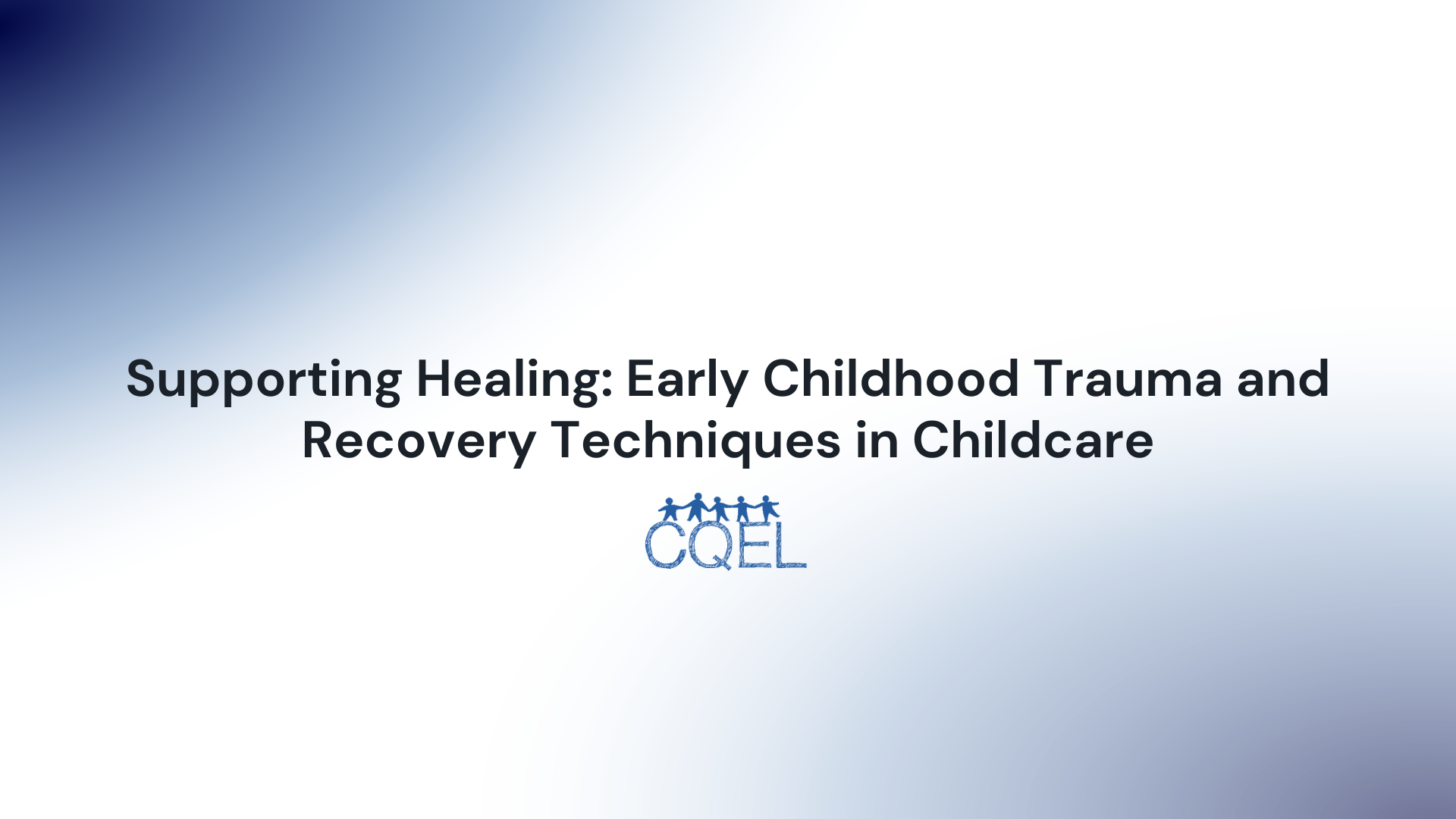Supporting Healing: Early Childhood Trauma and Recovery Techniques in Childcare
This article offers a comprehensive guide to recognizing the signs of trauma in young children and introduces proven recovery techniques to incorporate in your childcare practice.

Children's mental health is a growing concern worldwide, especially in the wake of disruptive global events. As childcare providers, one of our core responsibilities is to understand and respond to mental health issues, including early childhood trauma. This article offers a comprehensive guide to recognizing the signs of trauma in young children and introduces proven recovery techniques to incorporate in your childcare practice.
Understanding Early Childhood Trauma
Early childhood trauma refers to a range of experiences that can deeply impact a child's mental, physical, and emotional health. These might include neglect, physical or emotional abuse, violence exposure, or losing a loved one. Recognizing trauma can be complex, as it often manifests differently depending on the child's age and the nature of the trauma. The National Child Traumatic Stress Network provides valuable resources on understanding and identifying trauma.
Recognizing Signs of Trauma
The first step to supporting children in recovering from trauma is recognizing its signs. Look for significant changes in behavior, such as increased aggression, withdrawal, or regressive behaviors, such as thumb-sucking or bedwetting. The child may have nightmares, trouble concentrating, or show signs of fear, sadness, or anxiety. Resources like the Child Welfare Information Gateway offer comprehensive lists of potential signs.
Supportive Techniques for Trauma Recovery
For children experiencing trauma, creating a supportive, nurturing, and stable environment is critical. Consistent routines, clear expectations, and calm responses help foster a sense of security. Encourage children to express their feelings through conversation, art, or play. Mindfulness and relaxation exercises can also help children manage stress and anxiety.
Collaboration with Mental Health Professionals
Partnering with mental health professionals can provide vital support for children dealing with trauma. Child therapists, social workers, and trauma specialists have expertise that can complement and enhance the work of childcare providers. Consultation or collaboration with these professionals can greatly benefit the child's recovery process. Organizations like Zero to Three offer resources and networks for such collaborations.
Supporting Families
Parents and families play a crucial role in a child's recovery from trauma. Encourage open communication with families, sharing observations and collaborating on strategies for support. Providing families with resources like Parenting for Lifelong Health can equip them with additional strategies to support their children at home.
Relevant Links:
- National Child Traumatic Stress Network
- Child Welfare Information Gateway
- Zero to Three
- Parenting for Lifelong Health
Addressing early childhood trauma is a collective effort that requires understanding, empathy, and effective intervention. As childcare providers, we are in a unique position to support children on their path to recovery, fostering resilience, and laying a solid foundation for their mental health.
